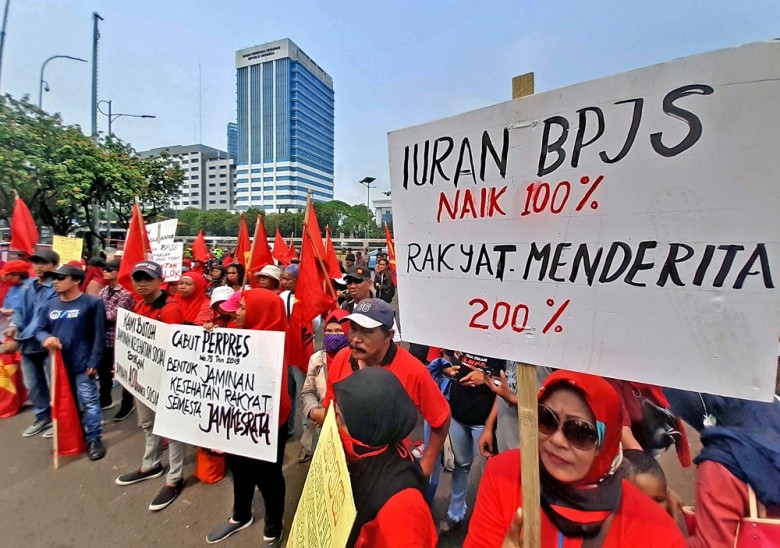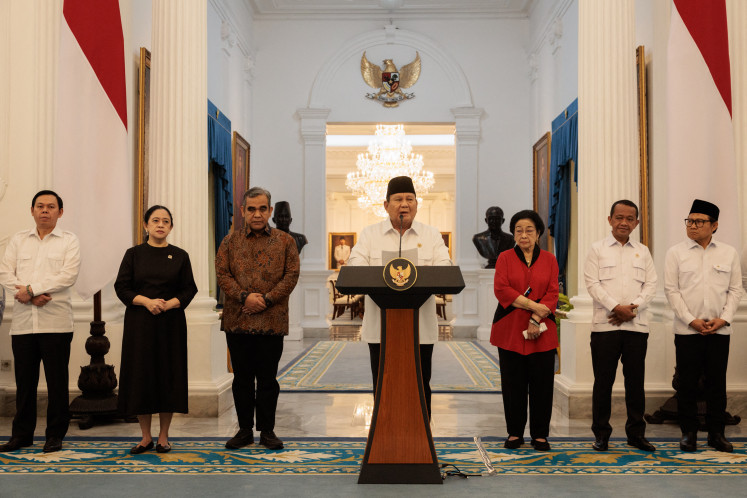Popular Reads
Top Results
Can't find what you're looking for?
View all search resultsPopular Reads
Top Results
Can't find what you're looking for?
View all search resultsReducing healthcare costs: Less harmful products can help
Unless the government wants to continue to bail out the national healthcare program, which is untenable in the long run, any solution that helps to reduce expenditure is worth a try.
Change text size
Gift Premium Articles
to Anyone
T
he right to health is currently under threat. The Healthcare and Social Security Agency (BPJS), which is in charge of Indonesia’s universal healthcare insurance system, is running a Rp 32 trillion (US$2.28 billion) deficit this year. At the same time, the government faces strong opposition to increasing the premium to cover the deficit. It seems like a no-win solution.
People from lower socioeconomic backgrounds depend on the system, but one fifth of the population remains without coverage. Targeting an insurance rate of 95 percent of the population next year, the expenditure can only be expected to increase.
That leaves the government with three options: do nothing, bail out the national healthcare program or implement austerity measures that decrease the quality of the program. In 2018, it chose to bail out the national healthcare program.
Unless the government wants to continue to bail out the national healthcare program, which is untenable in the long run, any solution that helps to reduce expenditure is worth a try. A start can be made by changing citizens’ lifestyles, nudging them to consume less harmful but not necessarily risk-free products. These products include sweeteners, low sodium salt and alternative less harmful tobacco products.
Less harmful products (LHPs) work as substitutes for the more harmful variety. For example, replacing sugar with artificial sweeteners and high-sodium salt with its low-sodium counterpart can make a major difference.
These products can significantly reduce the risk of non-communicable diseases (NCDs), such as stroke, heart disease, cancer, diabetes and chronic kidney disease. NCDs are the cause of 71 percent of total deaths in Indonesia. Moreover, they account for more than one third of BPJS expenditure.
Yet at a discussion organized by the Foundation for International Human Rights Reporting Standards (FIHRRST) last month, health experts and academics suggested that only a small percentage of the population was aware of LHPs. This shows that the government is still slow — or failing — to inform the public about less harmful alternatives. This could be interpreted as a denial of the public’s right to information.


















